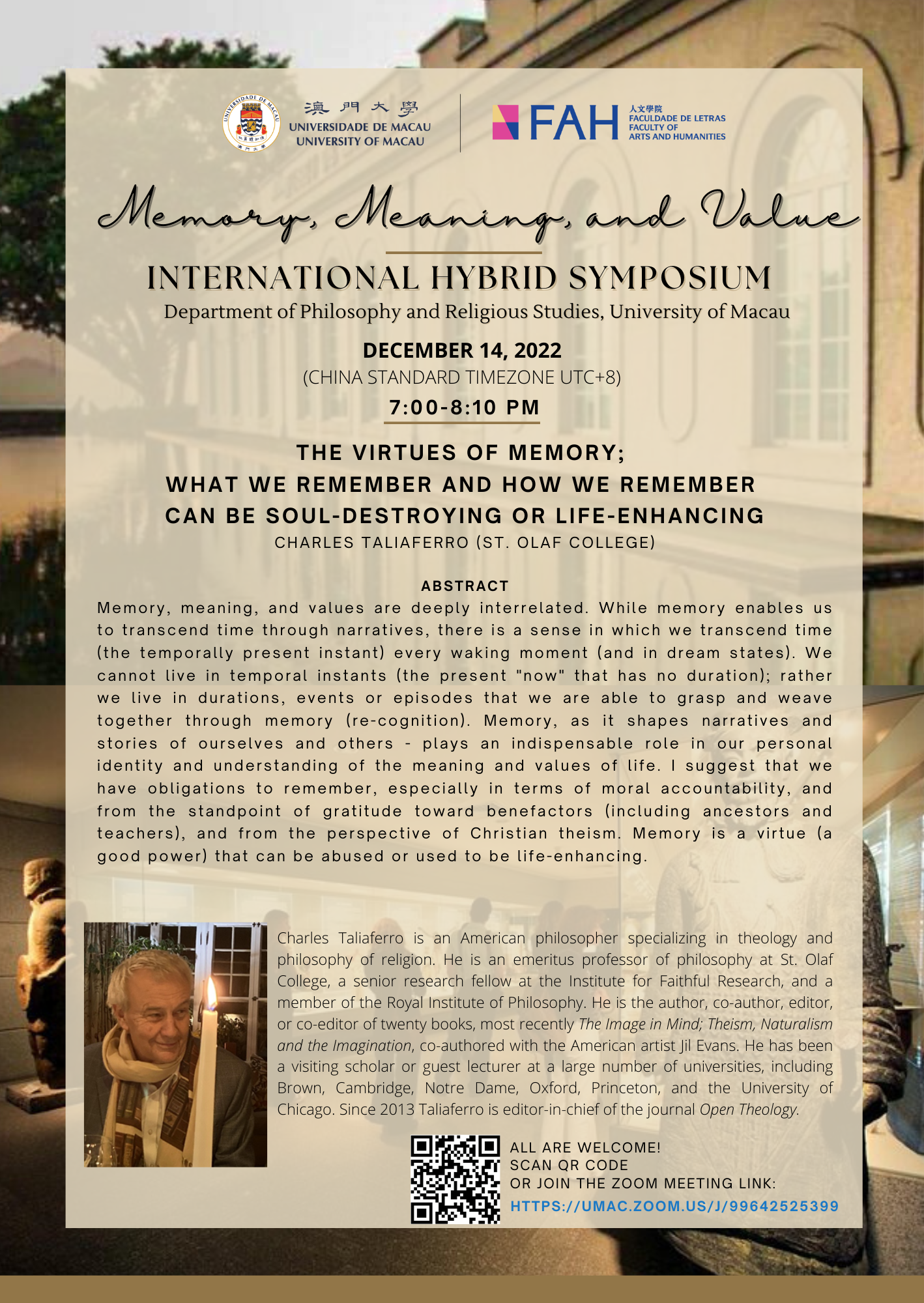

FAH/DPHIL International Hybrid Symposium – “The virtues of memory; What we remember and how we remember can be soul-destroying or life-enhancing” by Prof. Charles Raliaferro
2022-12-14 @ 7:00 pm ~ 8:10 pm
Abstract
Memory, meaning, and values are deeply interrelated. While memory enables us to transcend time through narratives, there is a sense in which we transcend time (the temporally present instant) every waking moment (and in dream states). We cannot live in temporal instants (the present “now” that has no duration); rather we live in durations, events or episodes that we are able to grasp and weave together through memory (re-cognition). Memory, as it shapes narratives and stories of ourselves and others– plays an indispensable role in our personal identity and understanding of the meaning and values of life. I suggest that we have obligations to remember, especially in terms of moral accountability, and from the standpoint of gratitude toward benefactors (including ancestors and teachers), and from the perspective of Christian theism. Memory is a virtue (a good power) that can be abused or used to be life-enhancing.
Bio
Charles Taliaferro is an American philosopher specializing in theology and philosophy of religion. He is an emeritus professor of philosophy at St. Olaf College, a senior research fellow at the Institute for Faithful Research, and a member of the Royal Institute of Philosophy. He is the author, co-author, editor, or co-editor of twenty books, most recently The Image in Mind; Theism, Naturalism and the Imagination, co-authored with the American artist Jil Evans. He has been a visiting scholar or guest lecturer at a large number of universities, including Brown, Cambridge, Notre Dame, Oxford, Princeton, and the University of Chicago. Since 2013 Taliaferro is editor-in-chief of the journal Open Theology.

